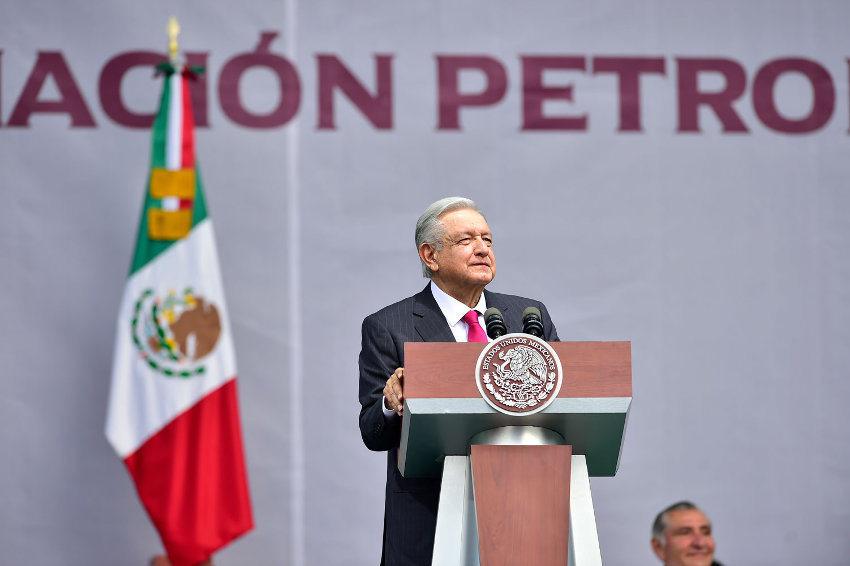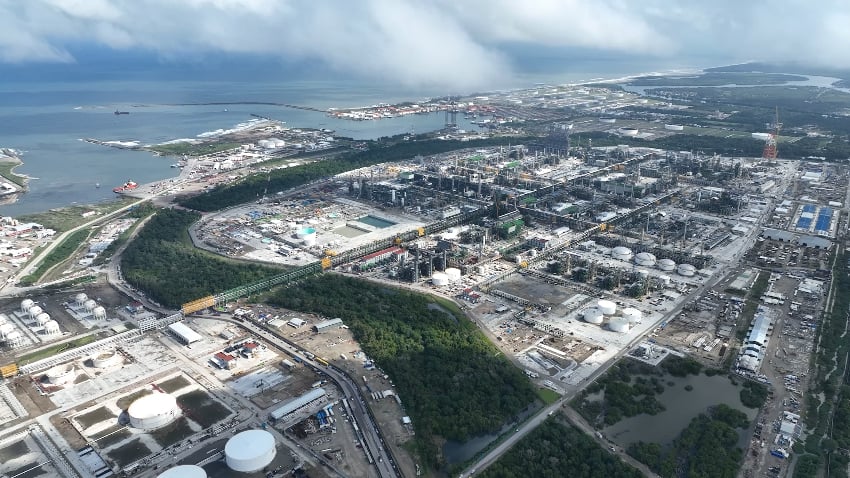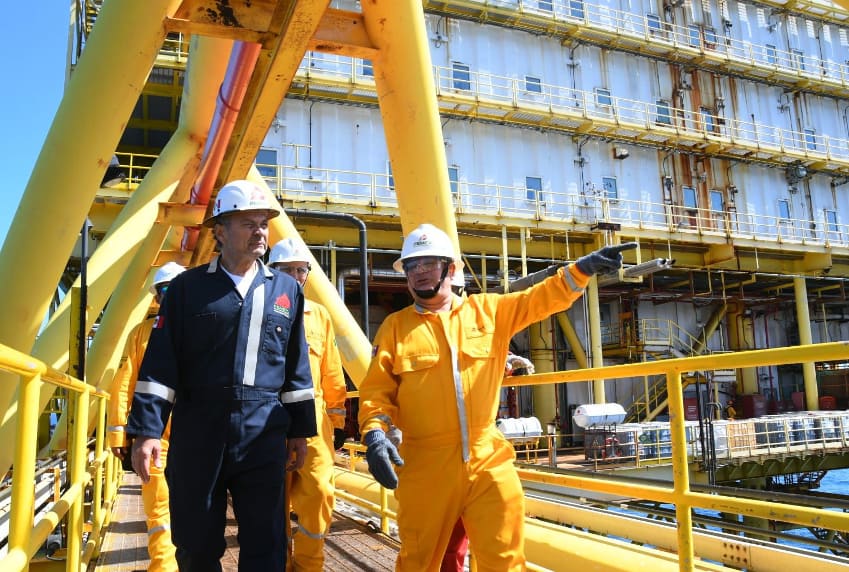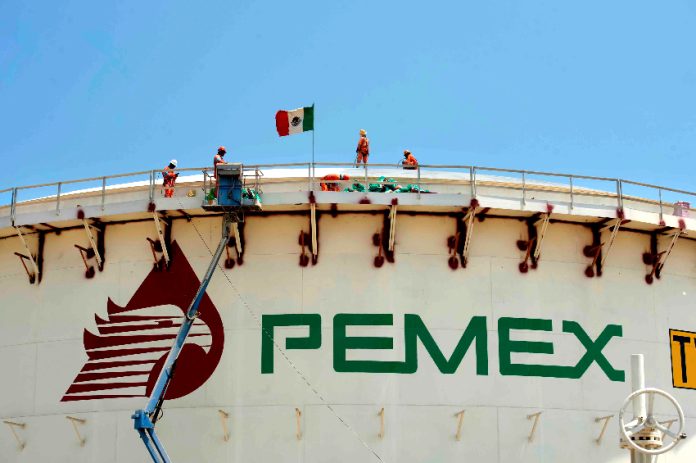President Andrés Manuel López Obrador has decreed major tax relief for Pemex, exempting the beleaguered state oil company from obligations to pay the government more than 100 billion pesos.
In a decree published in the government’s official gazette on Tuesday, López Obrador granted two new “fiscal stimuli” to Pemex, which has total debt in excess of US $100 billion.

This exempts the company from the requirement to pay Shared Profit Right (DUC) levies and Hydrocarbons Extraction Right (DEXTH) levies that correspond to a period of four months between October 2023 and January.
The move came four days after Moody’s Investor Service downgraded its rating for Pemex from B3 from B1, putting the company deeper into speculative, or junk, territory. In April 2020, Pemex became the world’s largest “fallen angel” when Moody’s downgraded its credit rating from investment grade to junk.
To meet its DUC (Derecho de Utilidad Compartida) levy commitments, Pemex in 2023 was required to make payments to the government equivalent to 40% of its gross oil and gas income. The levy — which was 65% when López Obrador took office in late 2018 — was reduced to 30% for 2024.
The president’s decree didn’t say how much the four-month DUC exemption would save Pemex, but a high-ranking state oil company source told Reuters that the saving would amount to around 110 billion pesos (US $6.4 billion). DUC levies — when they are paid — are a significant source of revenue for the government.

DEXTH (Derecho de extracción de hidrocarburos) levies are payable by all oil drillers that operate in Mexico. Pemex’s exemption from paying those that correspond to the October-January period will save the company an additional undisclosed amount.
López Obrador has made “rescuing” Pemex a central aim of his administration, which will conclude Sept. 30. The company is set to get 145 billion pesos (US $8.5 billion) from the government in 2024 to help it meet its immense short term debt repayment obligations, and it has received large cash injections and tax relief in previous years.
Government support between 2019 and 2023 adds up to over 1.3 trillion pesos (about US $76 billion), while the amount of money Pemex paid into state coffers declined 46% in annual terms to 166 billion pesos in the first nine months of last year, the La Jornada newspaper reported.
Despite the government support, Moody’s analysts said in the rating agency’s Pemex downgrade report that they expect the company’s cash flow and credit metrics to worsen in the next three years.

Although Pemex is in a poor financial state — a condition López Obrador attributes to decades of neglect by previous governments — it has increased its fuel production in recent years.
CEO Octavio Romero presented data last month that showed that production of gasoline, diesel and jet fuel at six Pemex refineries — those in Oaxaca, Hidalgo, Guanajuato, Veracruz, Nuevo León and Tamaulipas — was up 41% last year compared to November 2018, the month before the current government took office.
The company’s overall production has also been given a boost due to its acquisition of Shell’s share of the Deer Park refinery in Texas. Output will increase further this year as the new Olmeca refinery on the Tabasco coast ramps up production.
The data presented by Romero showed that national self-sufficiency for fuel — an objective López Obrador hoped to achieve before the end of his presidency — is possible by 2027.
With reports from El Economista, La Jornada, Bloomberg and Reuters
